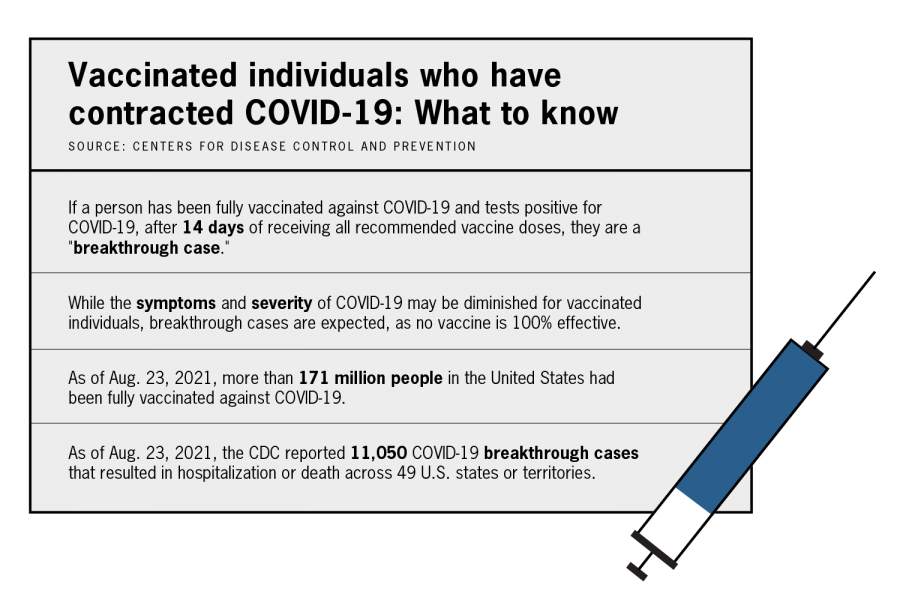UT tracks growing COVID-19 breakthrough cases with testing, contact tracing
September 10, 2021
Editor’s note: This article first appeared as part of the September 3 flipbook.
Since June 1, COVID-19 breakthrough cases have made up over 60% of cases detected in UT’s contact tracing efforts, a UT epidemiologist said.
The University has recorded about 300 breakthrough cases within the UT community since June 1 when the University first began seeing significant reports of repeat infections. People who contract COVID-19 after vaccination are considered a breakthrough case. While the Centers for Disease Control and Prevention said these cases may be less severe, vaccinated individuals who contract COVID-19 may still experience symptoms.
While UT does not know the exact number of vaccinated students and faculty, the University has vaccinated over 70,000 people. This number includes Austin community members.
The vaccine’s protection against COVID-19 diminishes over time and with the prevalence of the delta variant, breakthrough cases are becoming more common, according to the CDC. UT is expected to administer booster shots in the coming months, and the Biden administration encourages Americans to receive a booster shot eight months after their second COVID-19 shot.
Contact tracers call people who test positive for COVID-19 through the University’s Proactive Community Testing program to garner more information on their whereabouts, COVID-19 history and isolation status, said Darlene Bhavnani, assistant professor of population health.
“During the investigation, contact tracers capture history of COVID-19 vaccination, including dates of administration and vaccine name,” Bhavnani said. “In this way, contact tracing is able to identify breakthrough cases.”
Dago Lopez, a theatre and dance and interpersonal communications studies junior, said they got vaccinated in April but tested positive for COVID-19 in late July after going to a dinner party with friends.
“(My friends) made spaghetti and I love spaghetti, and the way they make the sauce — it tastes amazing,” Lopez said. “But I couldn’t taste the goddamn sauce. So that really freaked me out.”
While quarantining, Lopez lost their taste and smell and woke up with a headache for multiple days, but Lopez said overall the symptoms weren’t bad. They self-isolated for 15 days, and UT contact tracers spoke with them multiple times over the phone.
“When I tested positive, I forced my friends — all of them — to go get tested even though they were all vaccinated, and everyone came back negative,” Lopez said.











